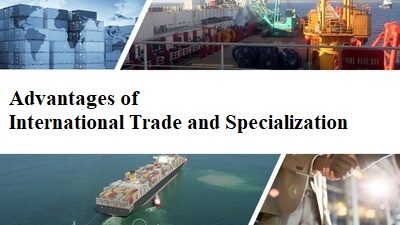 2023-05-11
2023-05-11
International trade and specialization are two crucial concepts that have revolutionized the way countries interact with each other. International trade refers to the exchange of goods and services between countries, while specialization refers to the concentration of production on a particular set of goods and services. Both of these concepts have several advantages that have helped countries to increase their economic growth and development.
Advantage 1: Increased Efficiency
International trade allows countries to specialize in the production of goods and services they are efficient at producing. By focusing on what they do best, countries can produce more goods and services at lower costs. For example, countries with abundant labor resources may specialize in labor-intensive goods, while countries with natural resources may specialize in producing natural resource-based products. This results in increased efficiency and productivity, which leads to lower costs and increased profits.
Advantage 2: Increased Competition
International trade increases competition between countries, which benefits consumers by providing them with a wider range of goods and services at lower prices. Increased competition also encourages innovation and technological advancement as companies strive to create new products and services to stay ahead of their competitors.
Advantage 3: Increased Employment Opportunities
International trade and specialization create new job opportunities in countries that specialize in the production of certain goods and services. For example, if a country specializes in producing textiles, it will create jobs in the textile industry. This creates a multiplier effect as workers in the textile industry will have increased spending power, leading to increased demand for other goods and services, creating even more job opportunities.
Advantage 4: Increased Access to Goods and Services
International trade allows countries to access goods and services that they may not be able to produce domestically. This allows consumers to have access to a wider range of goods and services at lower prices. For example, a country that does not produce oil can import it from another country at a lower cost than producing it domestically.
Advantage 5: Increased Economic Growth and Development
International trade and specialization can lead to increased economic growth and development as countries become more efficient, productive, and innovative. This, in turn, leads to increased investment opportunities, increased tax revenues, and improved standards of living.
In conclusion, international trade and specialization have several advantages that benefit countries, consumers, and businesses alike. Increased efficiency, competition, employment opportunities, access to goods and services, and economic growth and development are just some of the benefits that countries can enjoy by embracing these concepts. It is, therefore, essential for countries to engage in international trade and specialization to reap the benefits and contribute to global economic growth and development.
enterprise-china will safeguarding your international trade.












